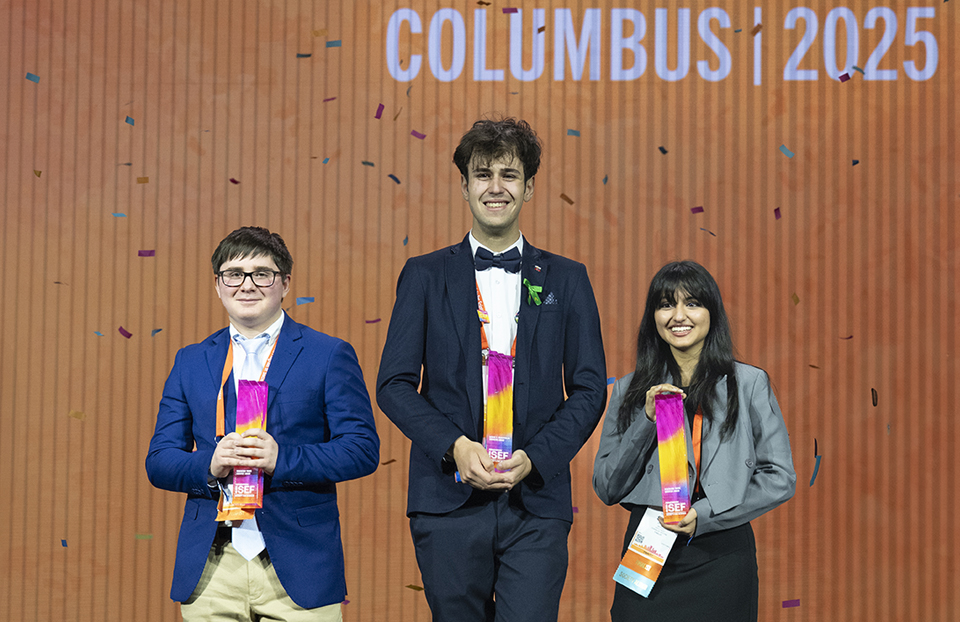Building scientific questions at Education Outreach Day 2022
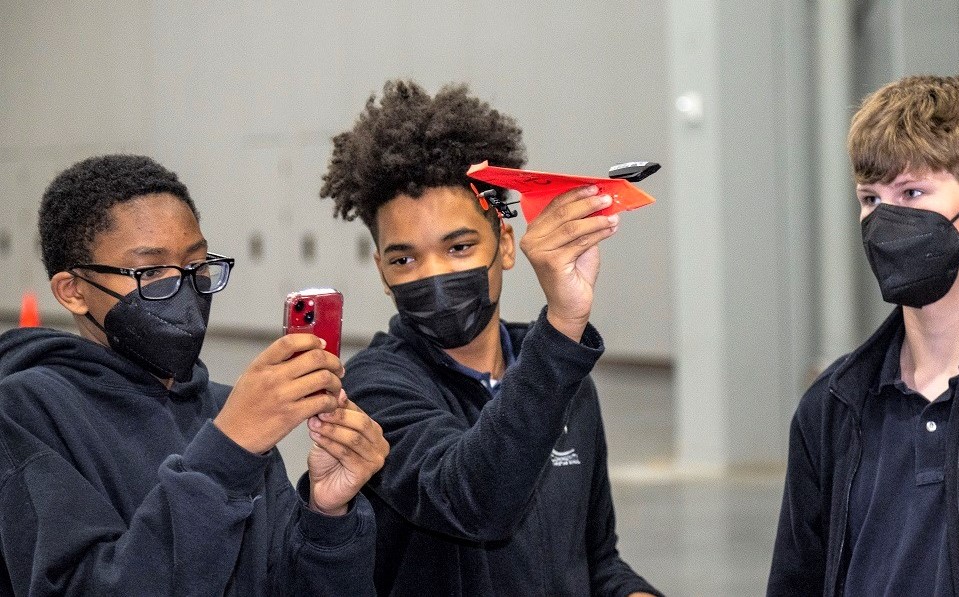
Last week, over 1,750 high school students competed in the 2022 Regeneron International Science and Engineering Fair, but the finalists weren’t the only young people exploring scientific questions at ISEF this year. For the first time since 2019, the Society hosted an in-person Education Outreach Day at ISEF. Sponsored by the Broadcom Foundation, the event welcomed thousands of students grades six through twelve from the Atlanta area to the Georgia World Congress Center, the site of this year’s fair, for a fun-filled day of scientific inquiry.
“This is a big reason we wanted to host ISEF in Atlanta, to make a local impact on middle school and high school students,” said Chris Mucha, Chair of ISEF’s Atlanta Local Arrangements Committee. “They get to be interactive and hopefully be inspired that they can be finalists one day, and that they can change the world through discovery and through science. This is what it’s all about for us.”
When students arrived, they received a brief orientation, along with an “Education Outreach Day Passport,” which served as a curriculum and guide to numerous on-site workshops, activities around the convention center and assisted students in identifying and developing scientific questions. The theme of the day was “Building Scientific Questions,” and each destination imparted the hows, whys and whats of scientific research. At the end of the day, every student took what they learned and formulated their own scientific question—a question they might answer in a science fair project of their own.
At the Device Discovery Zone, participants were introduced to a range of devices that collect and measure different types of scientific data. As students learned about the devices—from angle finders, to spectrographs, to pulse oximeters and more—they practiced taking measurements and recorded the possible uses and limitations of the devices in their passports. On his experience in the Device Discovery Zone, a sixth grader from Crawford Long Middle School in Atlanta said, “I’ve seen a lot of robots and a lot of projects that I like. I like to explore things that I’ve never really seen before.”
Students particularly enjoyed experimenting with PowerUp Airplanes, paper planes with small motors whose flight can be controlled with a mobile phone or tablet.
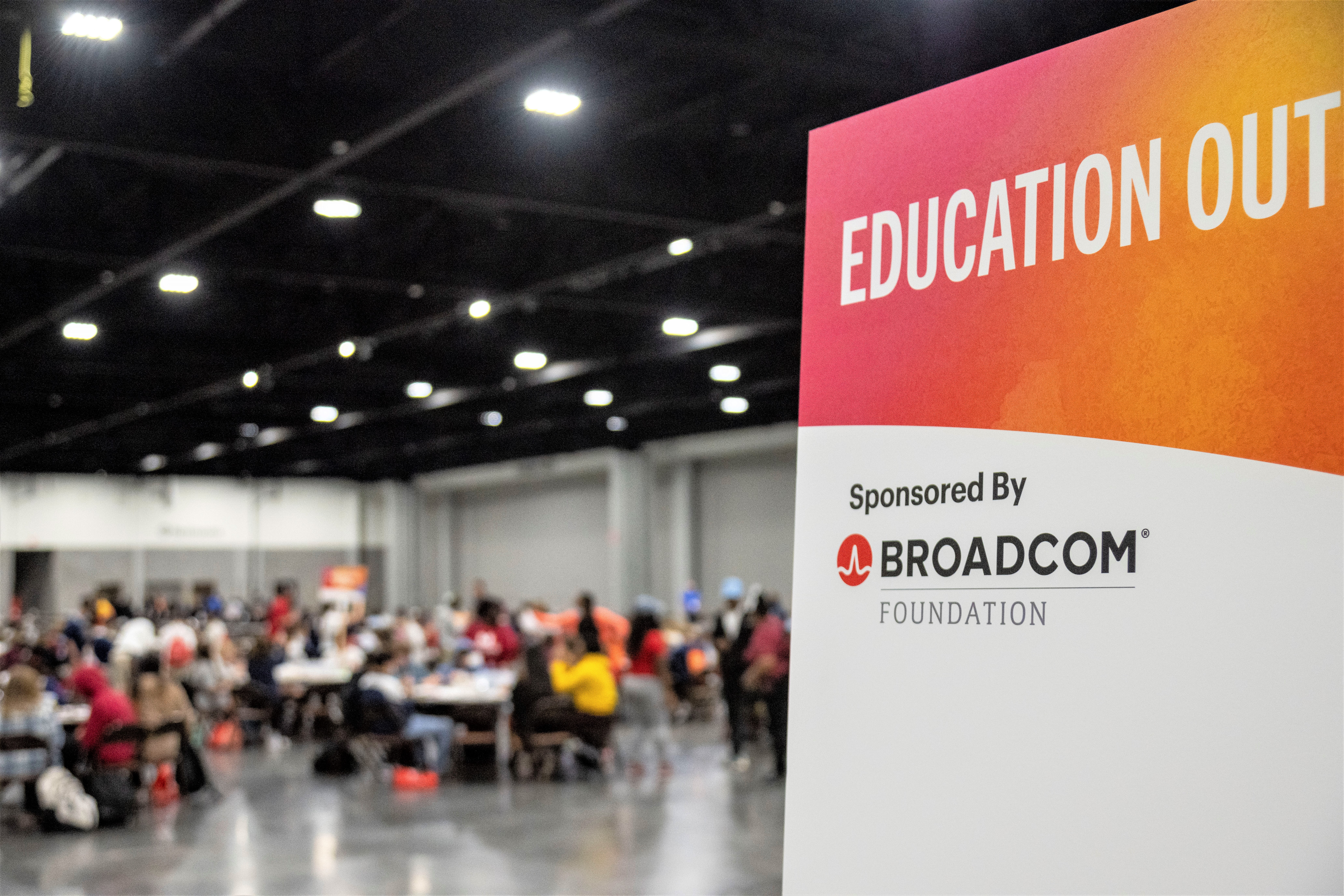
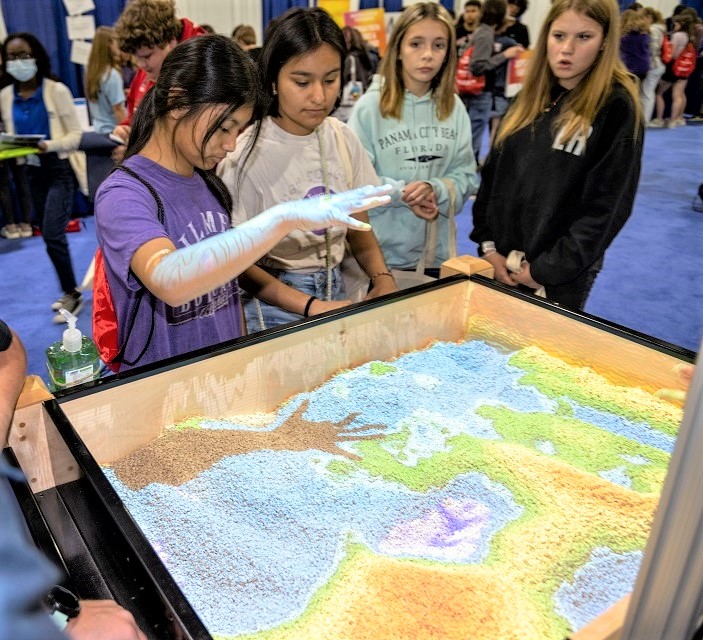
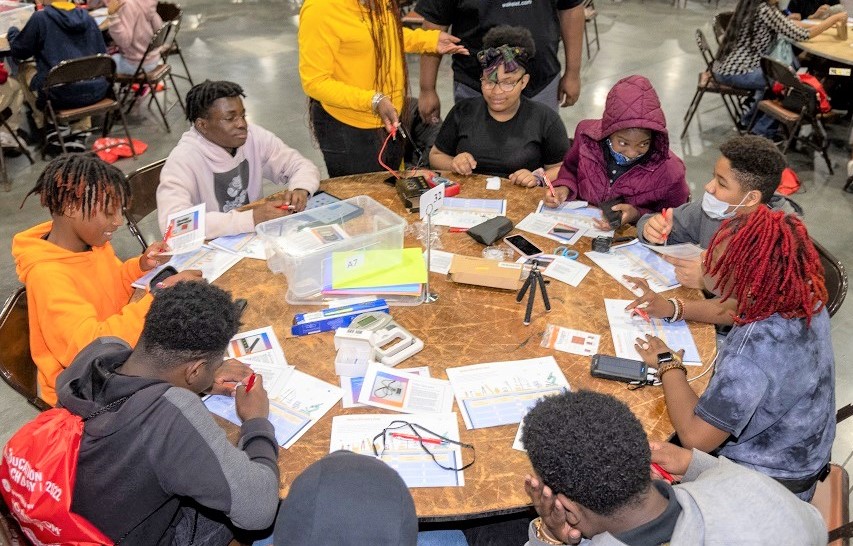
Students and chaperones then toured the ISEF Finalist Hall, where they viewed project boards of this year’s 1,172 in-person finalists. Participants also took part in hands-on classroom workshops and visited the STEM Innovation Expo, where they viewed demonstrations and participated in activities prepared by organizations such as the Georgia Aquarium, Georgia Tech, American Chemical Society and Centers for Disease Control and Prevention.
One of the day’s highlights was for students to hear directly from this year’s ISEF finalists in a series of Ted-style talks. Finalists shared their research, personal stories and advice for persevering through obstacles. Here are just a few perspectives shared by this year’s finalists:
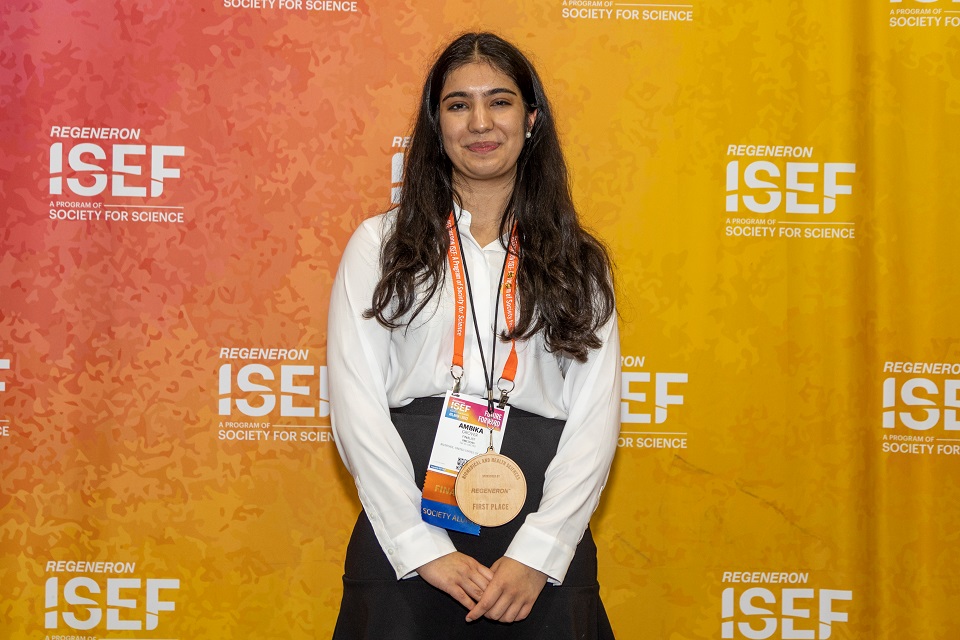
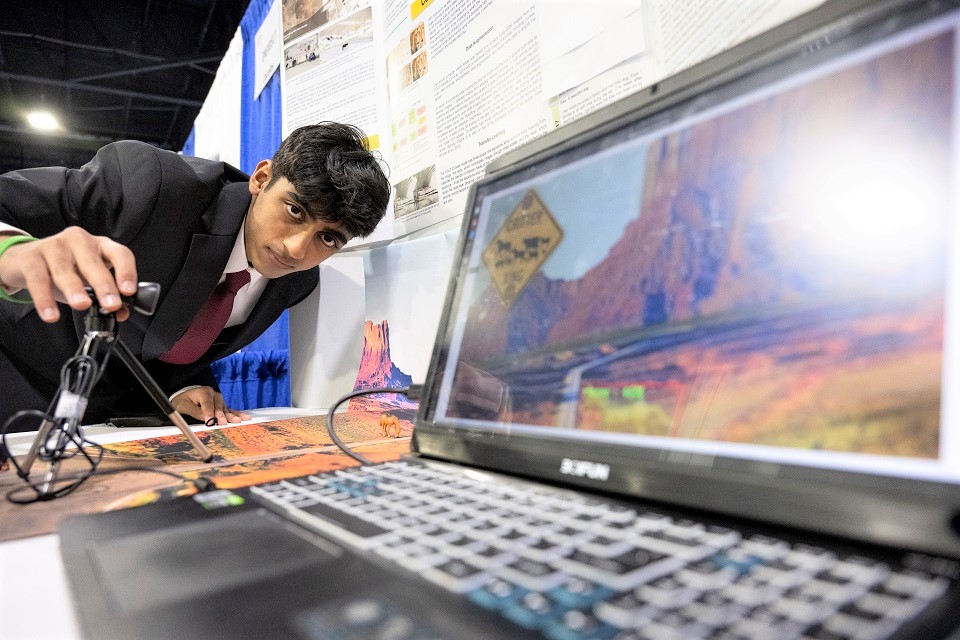
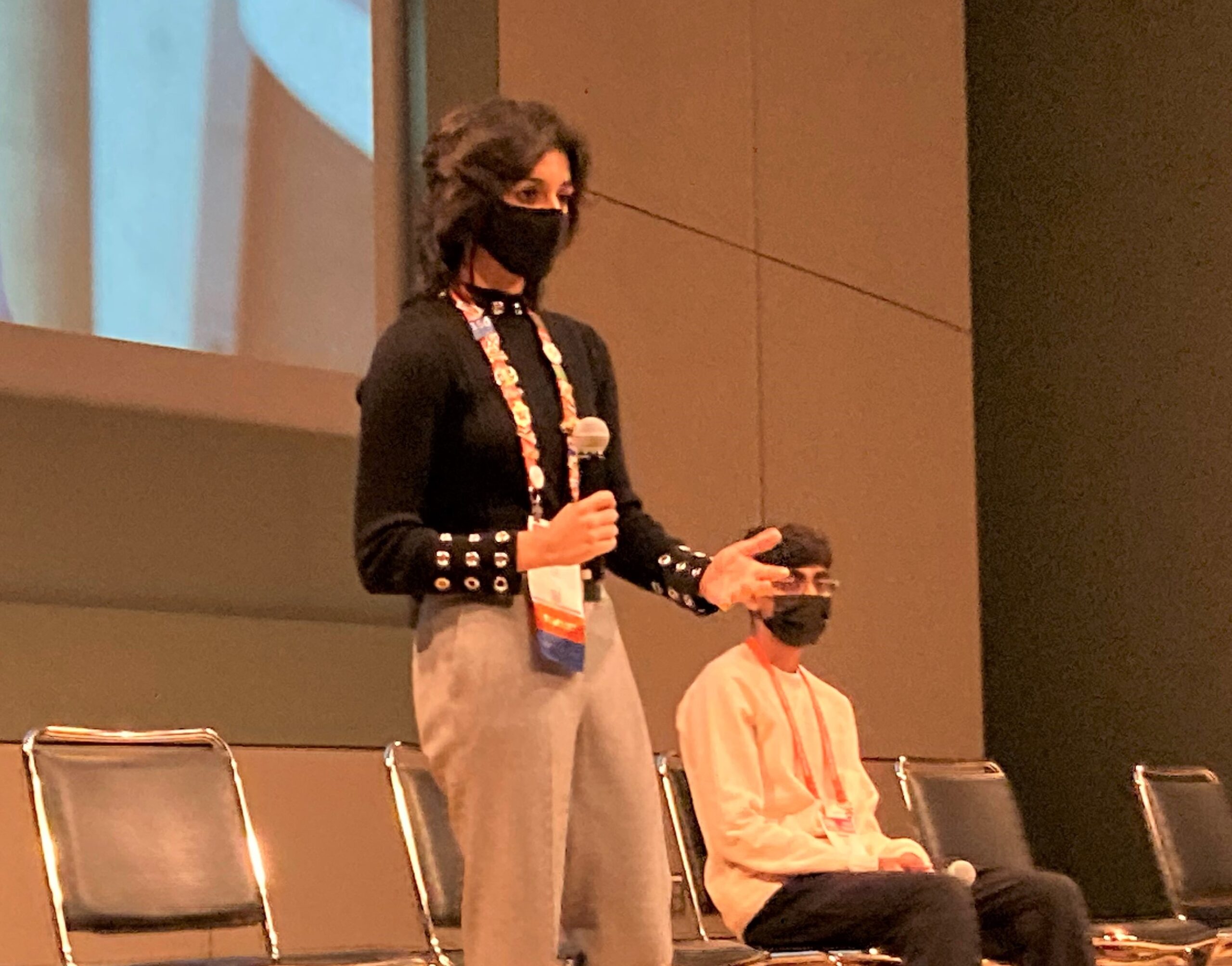
“If somebody uses a word and you’re not quite sure what it means, it never hurts to ask. I have had conversations where someone uses one word or phrase over and over again. Eventually I crack, and I’m like, ‘Hey man, what does that mean?’ Sometimes I find that they don’t even know, so we look it up and we both walk away from that conversation having learned something. There is no shame in asking a question, there is only shame in not being willing to learn.” — Sohi Patel, Materials Science, The Woodlands, Texas
“If you continue to focus on your education and work toward helping your community, there are no limits to what you can accomplish. A big lesson I’ve learned is that, instead of having self-doubt and asking, ‘Can I do this?’ by phrasing the question as, ‘How can I do this?’ you turn self-doubt into an action item—and that’s a superpower.” — Vedant Srinivas, Environmental Engineering, Sammamish, Washington
“We have these labels in our society that you’re a humanities kid, or you’re a sports kid or you’re a STEM kid. But those labels don’t represent what we’re truly capable of. You might think you’re not good at something, you might think you don’t belong. But science isn’t about being the perfect student, it’s about truly finding what you love, what bothers you and what resonates with you. That’s the true power of science.” — Ambika Grover, Biomedical and Health Sciences, Riverside, Connecticut
Thank you to all the schools, teachers, students, finalists and organizations who came together to make Education Outreach Day possible!


